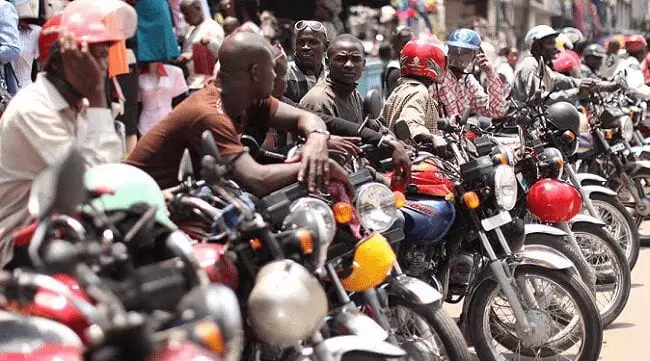
The government of Ghana has proposed stringent new regulations to govern the operation of commercial motorcycles (okada) and tricycles (pragyia), aiming to improve road safety and instil accountability in this booming sector.
Under the revised guidelines, only riders aged 25 and above will be eligible to operate these vehicles commercially. This age restriction is one of several key measures outlined in the proposed amendments to the Road Traffic Regulations, 2012 (LI 2180), according to the Minister of Transport, Joseph Bukari Nikpe.
The Minister announced these measures during a national stakeholder consultation in Accra on April 7, 2025, signalling the start of a broader effort to restructure the okada and pragyia sector. “Our utmost priority is the safety and welfare of riders and passengers,” he emphasized.
Mandatory Requirements for Okada and Pragyia Riders
The draft Legislative Instrument (LI) introduces the following mandatory requirements for all operators:
Age Restriction: Operators must be at least 25 years old.
Identification and Licensing: Riders must possess a valid national ID and a commercial rider’s license issued by the DVLA.
Training and Proficiency: Operators must undergo mandatory training, pass proficiency tests (including oral, theory, and vision assessments), and obtain a unique yellow license plate.
Safety Equipment: Riders must wear certified protective helmets marked with unique identification numbers and provide helmets for passengers.
Union Membership: Operators must be registered with a licensed commercial motorcycle or tricycle union or company.
Traffic Law Compliance: Riders must strictly adhere to all traffic laws, including speed limits and designated routes.
Violations of these regulations will attract severe penalties, including fines of up to 100 penalty units, imprisonment, or both, particularly for riders operating outside licensed unions or companies.
Addressing Safety Concerns
Motorcycles and tricycles have become indispensable in Ghana’s transportation landscape, particularly in areas with limited access to conventional vehicles. However, their growing popularity has brought significant challenges, including increased road traffic crashes, fatalities, and widespread non-compliance with road traffic laws.
Minister Nikpe underscored the urgency of these reforms: “We have witnessed alarming rates of accidents and fatalities involving motorcycles and tricycles. These regulations are a necessary step toward ensuring a structured, safer, and more accountable sector.”
Collaborative Approach
The Transport Ministry is actively engaging stakeholders—including the Ghana Police MTTD, the GPRTU, okada rider associations, civil society groups, and other transport operators—to finalize the regulatory framework.
This collaborative approach aims to balance the sector’s socio-economic importance with the pressing need for improved safety and order.
Next Steps
The government plans to roll out a nationwide sensitization campaign to educate riders, unions, and the public on the new regulations. This initiative is expected to ensure compliance and smooth implementation once the amendments are enacted.
As Ghana works to formalize and streamline the okada and pragyia sector, these regulations signify a crucial step toward a safer and more efficient transport system.
Story by: Mercy Addai Turkson #ahotoronline.com



